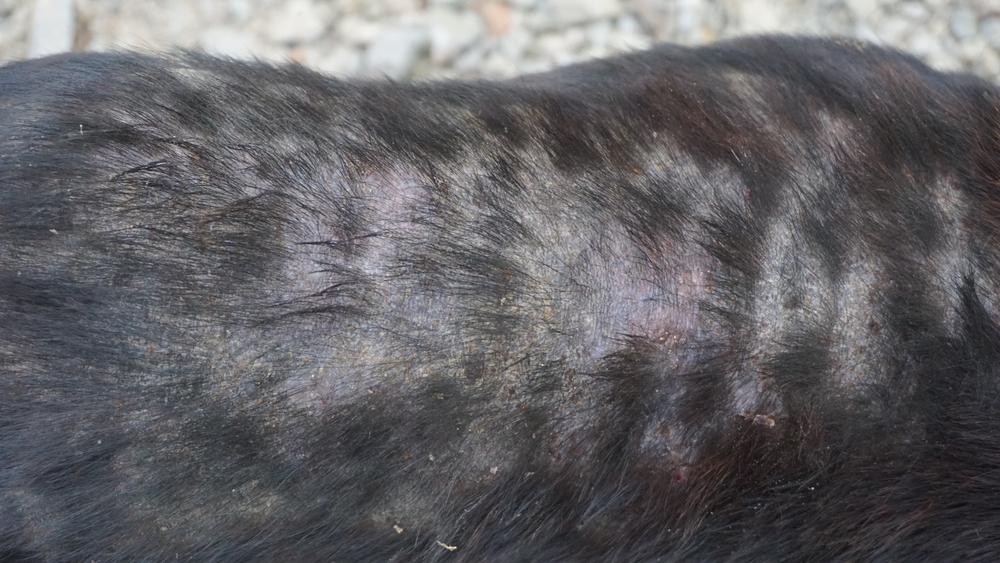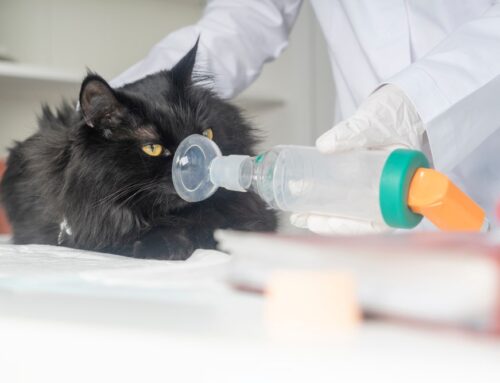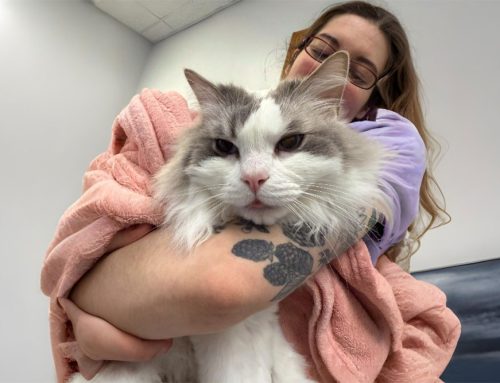Constant itching, scratching, licking, and chewing are major sources of frustration for pets and their owners. Nonstop scratching is irritating, and it can be a cause for concern, since itchiness can be attributed to a wide array of pet issues. Learn the potential reasons behind your furry pal’s itchy skin as our Animal Urgent Care of Oconomowoc team highlights some of the most common causes of itching in pets.
1: Fleas, ticks, and other parasites
Fleas and ticks are common external parasites that can infest your pet and cause intense itching. Flea bites can also trigger allergic reactions in pets and cause excessive scratching, biting, and hair loss. Mange mites and lice can also contribute to your pet’s itchiness, particularly if the infestation is severe. Your primary care veterinarian can recommend flea and tick preventives that will help keep these pesky parasites at bay. Prevention is key.
2: Allergies
Like people, pets can suffer from allergies to various environmental triggers, including pollen, dust mites, mold spores, chemicals, fabrics, and foods. Allergic reactions in pets often manifest as skin irritation, inflammation, and itching that commonly affect the ears, paws, and belly.
Identifying and avoiding allergens whenever possible is crucial for managing your pet’s allergies. Your primary care veterinarian can recommend allergy testing to pinpoint specific triggers, followed by allergen avoidance strategies, immunotherapy (i.e., allergy shots) to desensitize your pet’s immune system, or various other anti-itch therapies.
Food allergies, particularly to ingredients like beef, chicken, lamb, fish, dairy, and soy, can also cause intense itching and skin problems in pets. Switching to a novel or hypoallergenic diet may help alleviate your pet’s symptoms.
3: Skin infections
Bacterial and fungal infections can wreak havoc on your pet’s skin, causing severe itchiness, redness, sores, pustules, and more. Conditions like pyoderma (i.e., bacterial skin infections) and dermatophytosis (i.e., ringworm) are common culprits behind pets’ persistent itching.
Diagnostic tests, such as skin scrapings, skin cytology, or fungal cultures, can identify the underlying cause of your pet’s skin infection. Treatment typically involves oral or topical medications, along with good hygiene, to prevent recurrence.
Yeast infections, particularly in the ears and between skin folds, can also cause itching and irritation. Keeping your pet’s ears clean and dry with medicated ear cleansers or administering ear medications can help manage yeast infections.
4: Dry skin
Pets can suffer from dry skin, especially in dry or cold climates with low humidity, from frequent bathing, or inadequate nutrition. Dry skin can lead to itching, flakiness, and a dull coat in pets.
A balanced diet rich in omega-3 fatty acids can help improve your pet’s skin and coat health. Using a humidifier in your home during dry months also can help maintain optimal humidity levels for your pet’s skin.
5: Environmental irritants
Exposure to environmental irritants, such as harsh chemicals, detergents, perfumes, and cleaning products, can trigger allergic reactions in sensitive pets. Contact dermatitis, which is characterized by a red, itchy rash, or hives, can affect pets who contact irritants. Avoiding exposure to known irritants and using pet-safe cleaning products and grooming supplies can help prevent allergic reactions in your pet.
6: Psychological factors
Stress, anxiety, and boredom can manifest in pets through excessive grooming and scratching. Changes in routine, the addition of a new pet or family member, or environmental changes like moving to a new house can trigger stress-related itching in pets.
Providing your pet with mental stimulation, regular exercise, and a stable environment can help reduce stress and anxiety levels. Additionally, behavior modification techniques and calming aids may help alleviate stress-related itching behaviors.
7: Underlying health conditions

Underlying health issues, such as hormonal imbalances (e.g., thyroid problems, Cushing’s disease), autoimmune disorders, and organ dysfunction, can manifest as skin problems and itching in pets. A thorough physical examination, along with diagnostic tests such as bloodwork, skin biopsies, and allergy testing, may be necessary to identify your pet’s underlying health conditions.
Treatment for underlying health conditions will vary, depending on the specific diagnosis. Your primary care veterinarian will customize a treatment plan, which may include medications, dietary modifications, and ongoing monitoring, for your pet’s individual needs.
Understanding the root cause of your pet’s itchiness is essential to give them relief and improve their quality of life. If your pet is scratching excessively or showing skin irritation signs, visit your primary care veterinarian or schedule an appointment with our Animal Urgent Care of Oconomowoc team for a definitive diagnosis and treatment plan.







Leave A Comment